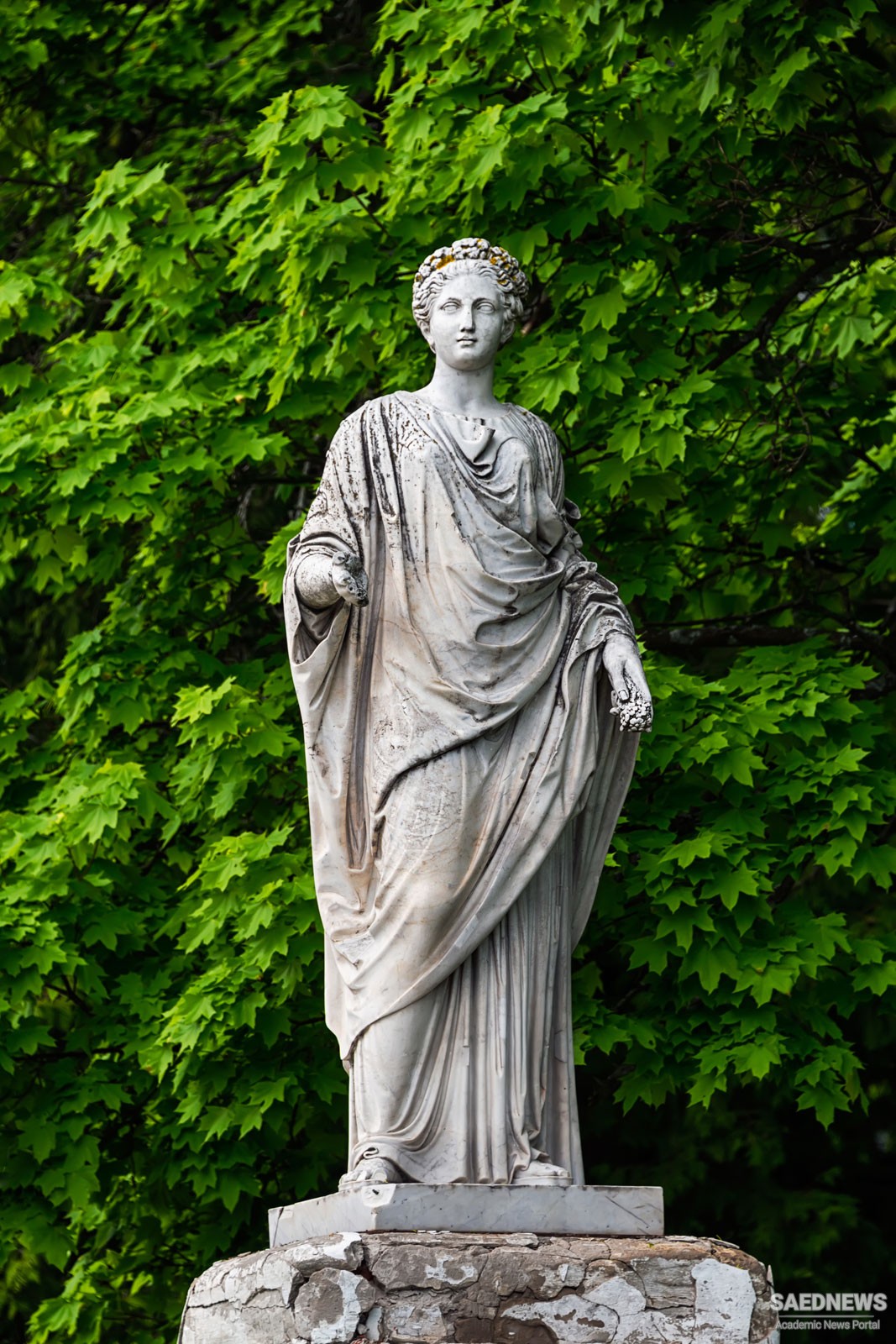Daughter of Cronus and Rhea, Demeter (Roman name: Ceres) was one of the great Olympians and the goddess of corn, grain and the harvest. Demeter protected and assured the fertility of the earth, farming and vegetation. Legend has it that Demeter made the crops grow annually; thus she received the first loaf of bread made from the annual harvest. Her children were: Persephone, Iacchus (both with one of her consorts, Zeus), and Arion, Despoina, Plutus, Eubuleus, Philomelus, Chrysothemis and Amphitheus I. Demeter was described as a mature woman who carried sheaves of wheat and a torch. In The Iliad, Homer describes Demeter as “golden-haired,” and in Theogony and Works & Days, Hesiod describes her as “bounteous Demeter, wellgarlanded, reverend and hallowed.” The god of the underworld, Hades, fell madly in love with Demeter’s daughter, Persephone, at first glance. With the consent of Zeus, (according to some accounts) Hades managed to abduct and take Persephone with him to the underworld. Demeter, in search of her lost daughter, roamed the earth day and night with torches. When she discovered what had actually happened, she left the sky, enraged with the gods. The infuriated Demeter cursed the world, causing the plants to wither and die, and the land to become barren. Her wandering didn’t halt until she reached Eleusis. She was masked as an old woman. She got a warm invite to the house of Keleus, the king of Eleusis. Here she nursed the only baby of Metaneira, the wife of Keleus. Demeter wanted to reward the family for their hospitality by making Demophon (the baby’s name) immortal. To achieve just that, Demeter began placing the child on a fire every night. Metaneira, nevertheless, upon seeing her only child buried in the fire, screamed. Demeter thereupon divulged her true identity and, in her honor, ordered the building of a temple. Demeter lived inside her newly-built temple, where she caused a dreadful drought that claimed the lives of many in order to persuade the other gods for her daughter’s release from Hades. In viewing the gravity of the situation, Zeus sought for the ill-gotten Persephone’s return. Before releasing her, however, Hades gave Persephone a pomegranate seed to eat, knowing the heavenly taste would have her return to him. At last, it was decreed that Persephone would be freed, but, nonetheless, would come back to Hades every year for four months. During these months, Demeter would grieve and create winter. Her daughter’s return brought spring.


 Poseidon, Creator of Horse and His Revenge of Trojans
Poseidon, Creator of Horse and His Revenge of Trojans














































